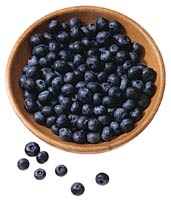by
Mike Geary, Certified Nutrition Specialist, Certified Personal Trainer
Author of best-seller: The Truth About Six Pack Abs
I've read about this very interesting Harvard University study about exercise multiple times in the past, but I was just recently reminded about this study again while reading the fascinating book called
59 Seconds by Richard Wiseman.
Pay attention, because this actually shows a pretty powerful trick that you can use to literally make ANY workout or exercise program a LOT more effective and results producing.
According to the book
59 Seconds, here's how this study was carried out:
Researchers at Harvard University studied over 80 hotel room cleaning attendants from 7 different hotels. The hotel room attendants naturally received a lot of exercise from their daily jobs, which included cleaning an average of 15 rooms per day at about 25 minutes per room. This work involves a good deal of exercise in carrying things, scrubbing, lifting objects, vacuuming, and so on.
The researchers knew the hotel maids led an active lifestyle from their work, but also questioned whether most of the maids may not realize that their work was actually good for their health. The researchers set out to study the effects on the hotel attendants of making them very aware of how beneficial the exercise they got while working was for their health, and to see if this increased the results that they actually received from the exercise.
Basically, the question was... Would telling them that their work was great exercise improve their health, lower their blood pressure, and help them to lose weight compared to the hotel attendants that didn't realize their work was in fact "exercise"?
The hotel attendants were split into 2 groups:
1. This group was informed about the benefits of exercise and told how many calories they were burning while doing their hotel cleaning work each day. They were specifically told how many calories activities such as changing sheets, vacumming, and scrubbing bathrooms were burning each hour.
The researchers also wanted this information to stick in their heads daily, so they gave the attendants a handout showing the quantities of calories they were burning doing each activity of their jobs. They were also shown a poster daily that reinforced how many calories they were burning.
2. The control group of hotel cleaning attendants was simply informed of the benefits of exercise, but were NOT told how many calories they were burning doing their work, and also were NOT told that their work actually constituted a good form of exercise.
The researchers studied the existing lifestyles of all of the participants in both groups as well as giving them various health tests, including weigh-ins.
The study was conducted for 4 weeks. The researchers made sure that none of the participants had actually changed their exercise habits, smoking, or eating habits outside of work. This assured that there was no external lifestyle factor that could have accounted for the results of the study.
In addition, the hotel managers assured that the workloads of both groups stayed the same throughout the entire experiment.
Here are the VERY interesting results:
It turned out that the group of hotel cleaning attendants that was informed daily about the calorie-burning effects of their normal work routines ended up losing a significant amount of weight, lowered their body mass index and waist-to-hip ratio, and decreased their blood pressure.
The control group of hotel attendants that was not told about the calories they burned while doing their work showed NONE of these improvements.
Wow... very interesting huh!
Remember that each of these groups received the SAME amount of exercise and did not alter their lifestyle, eating habits, drinking habits, smoking, or anything else. The only thing that was different between the 2 groups was simply that the one group was constantly being reminded of how beneficial the exercise during their work was for their health and how many calories they were burning, and therefore their minds were busy believing in the benefits of it.
This actually doesn't surprise me... this is classic
placebo effect at work here, and reinforces how powerful our brains are in relation to the results we get from exercise, food, supplements, etc.
How to use this info to burn more fat in your workouts, build more lean muscle, and improve your health more from exercise and nutrition
There's a good lesson in this study. If you strongly believe in your mind that the workouts that you are doing are drastically improving your body, your results will increase dramatically from those workouts.
The trick I've used over the years is to really "get mental" during your workouts and believe strongly that the exercise you are doing is transforming your body into a lean chiseled machine. (This is assuming that you're actually doing legit workouts such as
Truth About Abs routines and not just wasting time reading a magazine while pedaling away on a boring exercise bike or treadmill).
So, if you want to
burn more fat, not only do you need to workout intensely (for your individual capabilities), but you also need to mentally visualize the results you're getting, the bodyfat you are burning, and really strongly believe in how powerful the workout routine that you are doing really is for your body.
Along the same lines, if your goal is to
build more muscle, then you really need to strongly believe in your mind at how powerfully your workouts are helping you to build muscle.
And this can be applied to your food intake too!
Don't underestimate how powerful your mind really is... If you are eating healthy foods such as those detailed in my
Truth About Abs manual, make sure that you are also
actively thinking in your mind about how those foods are dramatically helping your body, making you stronger, making you leaner, improving your energy and health, and so on.
Don't ignore this... this will drastically improve your results if you actively think about how truly healthy the foods you are eating every day are and how they are changing your body. This is assuming that you
actually are eating truly healthy foods every day.
Another benefit of this "mental programming" is that it trains you to actually want to avoid junk foods, because you want to be able to think about how everything you eat is improving your body instead.
So there you go... an interesting study that shows how you can legitimately increase your results from your exercise and nutrition by just actively thinking about the benefits of both every day!
Please feel free to share the link to this page with your friends and family on email, your blogs or forums, Facebook, Twitter, etc.
FOR ME FREE ARTICLES ON DIETING, EXERCISE ROUTINE & WEIGHT LOSS GO TO
www.MovingForwardNutrition.com
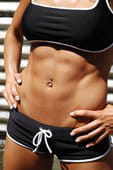 I bet you didn't know that there is a specific class of vegetables that contain very unique phytonutrients that actually help to fight against stubborn belly fat.
I bet you didn't know that there is a specific class of vegetables that contain very unique phytonutrients that actually help to fight against stubborn belly fat.

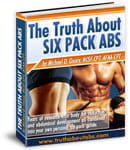
 We all know by now that soda (aka "pop" in some areas) is one of the most evil things you can put in your body... the nasty chemicals, the gut-fattening high fructose corn syrup, and a myriad of health problems caused by this carbonated cocktail worshipped by those that don't care about their health or body.
We all know by now that soda (aka "pop" in some areas) is one of the most evil things you can put in your body... the nasty chemicals, the gut-fattening high fructose corn syrup, and a myriad of health problems caused by this carbonated cocktail worshipped by those that don't care about their health or body. You may know I've been called the anti-cardio guy before, but this week I'm back posing the question to you... Do you really need cardio training to get lean and in great shape? By the way, you'll see in a minute that I'm not really "anti-cardio", just "anti traditional cardio".
You may know I've been called the anti-cardio guy before, but this week I'm back posing the question to you... Do you really need cardio training to get lean and in great shape? By the way, you'll see in a minute that I'm not really "anti-cardio", just "anti traditional cardio".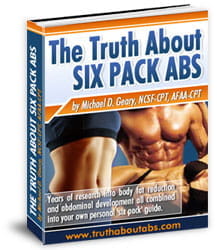 I challenge you to give the "traditional cardio" a rest for a month or two, and start training the way I explain in my internationally-selling
I challenge you to give the "traditional cardio" a rest for a month or two, and start training the way I explain in my internationally-selling 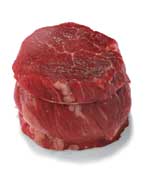 by
by 